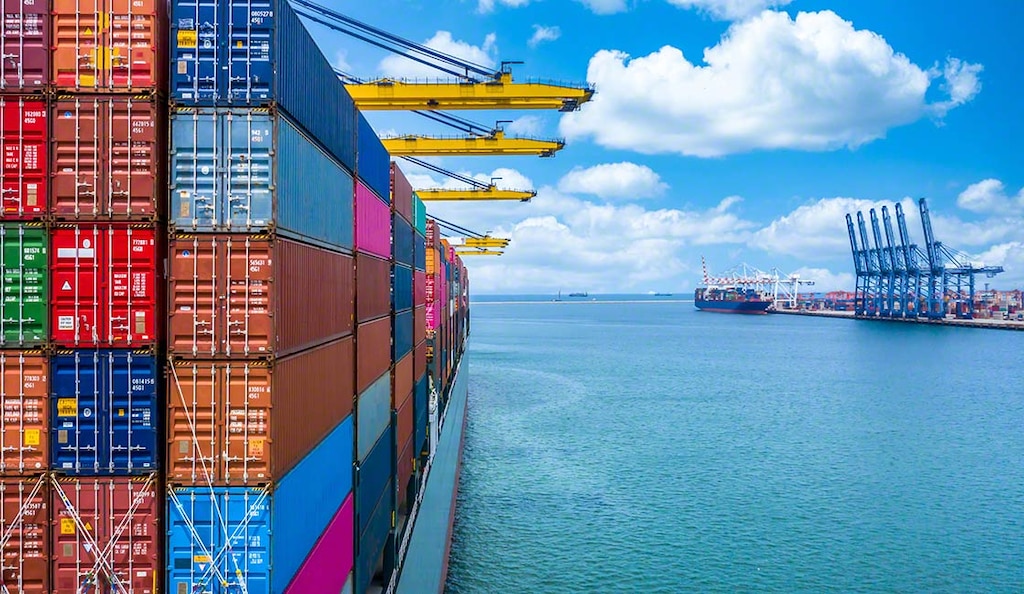
International logistics: what is it and how do you optimize its operations?
International logistics plays a key role in world trade. With businesses becoming ever more globalized, understanding the key elements of international logistics helps achieve an efficient flow of goods and services around the world.
Companies that expand their presence beyond their borders and successfully manage international logistics can reduce costs, improve lead times, and minimize risks, in addition to complying with the legal and customs requirements of each country.
What is international logistics?
International logistics refers to the management of processes and activities related to the movement of goods, services, and information across borders. Its goal is to ensure an efficient supply chain flow from the point of origin to the final destination, considering aspects such as customs procedures and legal regulations, transportation, and storage, among others.
International logistics covers activities such as the planning and optimization of routes and modes of transportation, the processing of import and export documents, and the management of customs procedures. It also encompasses the storage and distribution of goods, the monitoring of shipments, as well as efficient supply chain procurement (management of suppliers and logistics partners in different countries).
In short, international logistics is responsible for planning, organizing, and controlling all the logistics activities necessary to carry out an effective exchange of goods and services on an international scale.

International logistics: characteristics and differences with domestic logistics
International logistics has several characteristics that distinguish it from logistics at the national level:
- Borders and trade barriers. International logistics involves crossing international borders, which requires compliance with customs regulations, import and export requirements, and potential trade barriers such as tariffs and quotas. In domestic logistics, on the other hand, these barriers are minimal or non-existent, since shipments are made within the same country.
- Distances and modes of transportation. International logistics involves the transportation of goods over much greater distances compared to its domestic counterpart. To overcome geographical barriers, companies have to resort to different modes of transportation, such as planes, trains, ships, and trucks. Domestically, shipments are generally made over shorter distances and by land.
- Customs and documentary complexity. The customs regulations and documentation involved in international logistics can be complex and varied and include procedures such as customs declarations, commercial invoices, and certificates of origin. It may also involve the use of bonded warehouses. Requirements are country-specific and can vary substantially. In domestic logistics, documentation and customs procedures are less cumbersome, since shipments take place within the same country.
- Legislation and regulations. International logistics involves complying with trade laws and regulations in different countries, which can vary considerably. Each country may have its own regulations on tax, customs procedures, security, environmental protection, and trading standards. In domestic logistics, the national laws and regulations of a single country apply.
- Language and cultural management. In international logistics, it is common to work with business partners from multiple countries, which means taking linguistic and cultural considerations into account. Companies need intercultural communication and negotiation skills to effectively manage business relationships. In national logistics, language and culture are generally shared, which facilitates communication and mutual understanding.
- Risk management. When transporting goods to other countries or continents, it is necessary to consider additional risks, such as damage in transit, loss of load, exchange rate fluctuations, and changes in customs regulations. Any risk may require more complex insurance management. In domestic logistics, the risks are more limited to the internal conditions of each country.
These differences highlight the additional complexity and challenges companies face when marketing their products across borders.

Optimization of international logistics with warehouse management software
In the field of international logistics, using a warehouse management system (WMS) can be very beneficial for improving and optimizing the following operations:
- Real-time stock monitoring and visibility. A WMS monitors logistics operations and provides full visibility over real-time inventory status and location throughout the supply chain.
- International inventory tracking. Warehouse management software is capable of managing inventory in different geographical locations, thereby coordinating the planning and supply of goods. This is done based on the demand in each market in order to avoid stockouts (or overstock).
- Maximization of routes and modes of transportation. Some WMSs have advanced functionalities to streamline delivery routes and select appropriate modes of transportation. Technology helps companies that market their products in other countries reduce shipping costs, minimize transit times, and increase customer satisfaction.
- Collaboration and communication with logistics partners. Warehouse management software facilitates communication between international logistics partners. Companies share relevant information and data that optimize operations and prevent errors and delays in the exchange of information.
- Indicators to improve decision-making. Digitalization makes it possible to monitor logistics indicators, evaluate operational efficiency, as well as make decisions based on data to continuously improve international logistics processes.
In short, warehouse management software enhances product visibility and efficiently coordinates the different supply chain operations. Digitization also makes it easier to manage inventory, create customs documents, and collaborate with logistics partners in multiple countries.
International logistics: the key to efficient global trade
International logistics is of crucial importance for companies seeking to expand into the global market. By understanding its key aspects and adopting best practices, companies can take advantage of the opportunities of international trade and guarantee an optimal flow of goods worldwide.
If you’re thinking of marketing your products internationally, contact us. One of our expert consultants will analyze your logistics requirements and help you successfully create a supply chain that’s ready to serve new markets.
